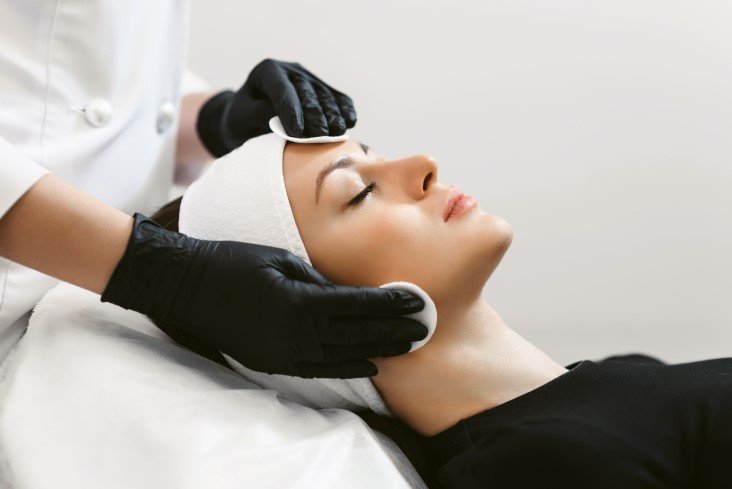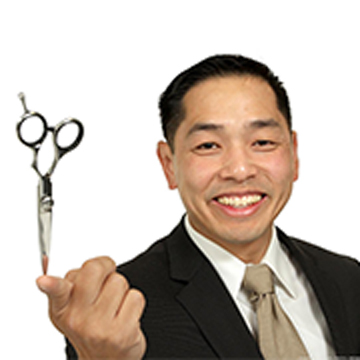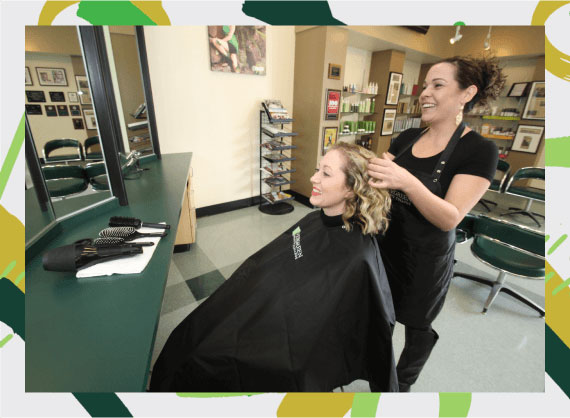7 Careers You Can Pursue After Esthetician School

Aleksandr – istockphoto.com
As a trade school, it makes sense that you’d be concerned about how you can turn your esthetician education into a career. The good news is that there are plenty of career options for estheticians in the beauty industry. You just need to know where to look.
Esthetics programs can prepare you for a wide variety of career options. Regardless of what you would consider your “dream job,” you can pursue many of these careers. While you may want to pursue extra specialty knowledge, even the general knowledge of esthetics can prepare you to move into these jobs. Here are seven careers in esthetics that a licensed esthetician may be able to pursue.
1. Lash and brow specialist
Many skin care specialists are great for helping with lash and brow design. This may include adding semi-permanent false eyelash extensions, laminating eyebrows, and generally focusing on lash and brow work when doing makeup application. Having your esthetics license can help you understand how to do these body treatments and present your clients with a great look that they’ll come back to you for again and again.
2. Makeup artist
If you’ve already trained for your esthetician license, you may be ready for a rewarding career in makeup application. While some makeup artists have self-taught knowledge, there are a number of technical skills that esthetician school can give you that will significantly help when moving into the cosmetology industry. This may include information about how to prepare and care for the skin, color theory knowledge, and delicate application, all important elements of makeup artistry that a licensed cosmetologist may be able to offer.
3. Medical esthetician
Many esthetics specialists work in some kind of medical setting. It’s very common for a medical esthetician to work with plastic surgeons, dermatology offices, and skincare clinics. Some skincare services, such as chemical peels, can be an important part of advanced treatments for issues like acne. There’s quite a demand for estheticians who work as skincare specialists, so if dermatology is something you’re interested in, there are definitely ample career opportunities.
4. Hair removal specialist/waxer
Whether you’re providing hair removal services with laser hair removal or with waxing and threading, hair removal is an important part of the variety of services that an esthetics-based beauty professional can likely offer. A hair removal specialist can also work in a variety of settings, ranging from barber shops to wellness centers to laser treatment centers.
5. Spa professional
Whether you’re working in cruise ships, high-end spas, or salons that offer a wide array of services, working as a spa professional can be a great way to have an amazing career offering your esthetic services. Spa professionals often focus on providing a calming, enjoyable experience, emphasizing experiences that make clients feel comfortable and happy. If you enjoy face masks, deep tissue massages, and aromatherapy, this can be a great option.
6. Salon or spa owner
If you find that you have a special knowledge of the business side of esthetics, you may want to consider becoming a salon manager or owner. Owners of salons and spas are generally expected to have their own passion for beauty and at least some experience with working as a cosmetologist or esthetician. While you’ll be managing the salon itself, you’ll likely also be doing some work from time to time, so having experience from esthetic schools will benefit your career path.
7. Beauty business owner
Some people end up using their esthetics knowledge to start their own beauty-related business. One of the more exciting career opportunities for future estheticians is the possibility of taking this knowledge and using it to build your own products to fill a niche in the market. Whether it’s to help with various skin conditions or to offer a special benefit for specific hair types, esthetics experts can definitely build their own business based on their knowledge.
Start your journey with an esthetics program

ANR Production – stock.adobe.com
From make-up artists to spa managers and beyond, there are a number of different options available for people who go through the esthetics process. If you’re thinking about starting your esthetics journey, contact Evergreen Beauty College to learn more about your options. With Evergreen Beauty College, you can get a great esthetics education and pursue any of these careers or a wide array of other options.
FAQ: Careers you can pursue after esthetician school
What’s the difference between an esthetician and a cosmetologist?
Most of the time, estheticians have more of a focus on skincare and the medical side of beauty, while cosmetologists may focus more on haircare, with a general knowledge of a wide variety of beauty components. The difference partially depends on where you study and what beauty school or cosmetology school you attend.
Do you need any prerequisites to attend esthetician school?
The only prerequisites you usually need to attend esthetician school are to have a GED or high school diploma and to be at least 18 years old. It’s very uncommon for you to need any existing knowledge of skincare products or esthetics experience to attend an esthetician school. However, it can be helpful to generally have a passion for the field so that you know some general skincare information before you start your official studying. Talk to your school’s recruiter if you’re worried about meeting prerequisites.
Can I get financial aid for esthetics programs?
As with many cosmetology schools, most esthetics programs offer some amount of financial aid. This may include federal financial aid, school-specific financial aid, scholarships, and payment programs, among other financial aid options. Most of the time, a school will be able to steer you toward at least some financial aid options that may be available for you. Remember that to provide federal financial aid, a program needs to be accredited, so checking for accreditation could be an important step if you’re worried about being able to afford your esthetics education.




